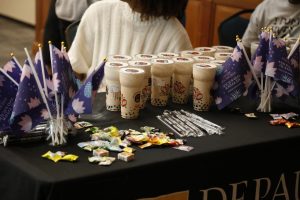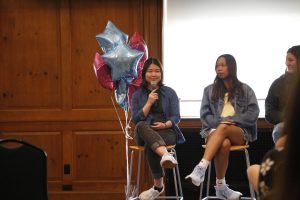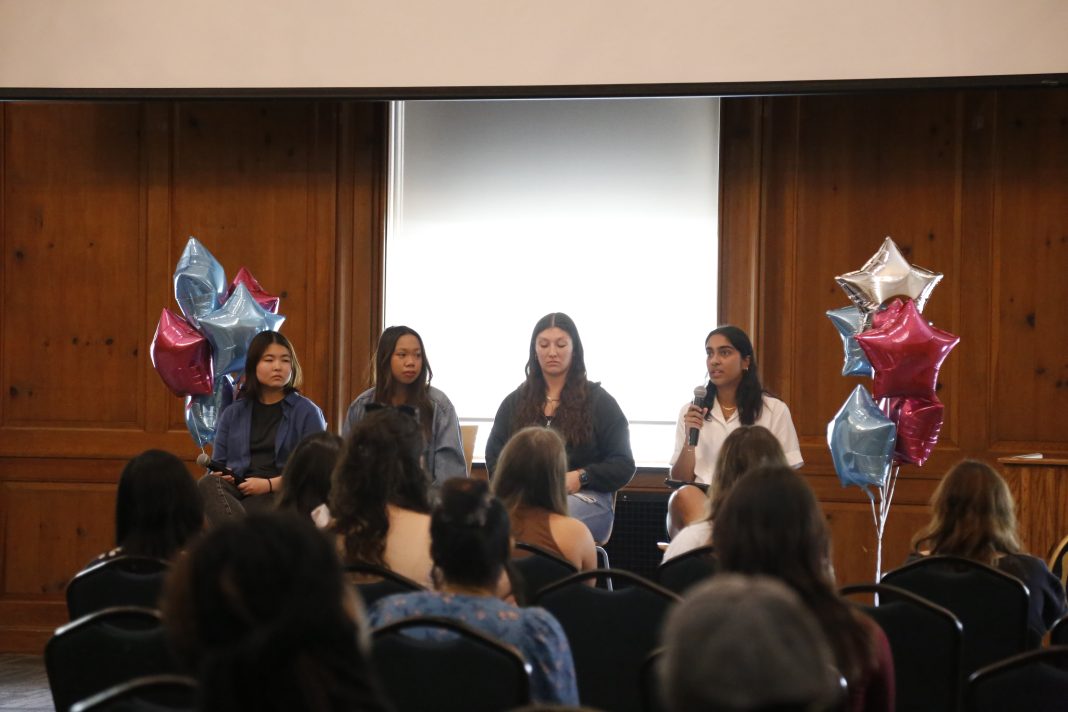During lunch time on May 2, UB Ballroom was lively as students gathered for the "Tea Talks with Boba" event hosted by the Center for Diversity and Inclusion (CDI). Organized in celebration of Asian American & Pacific Islander Heritage Month, the event featured a diverse panel of enthusiastic Asian American students, including Kisa Tamai '26, Irene Amalaraj '24, Mary Lomahan '25, and Asya Smith '25—each bringing a unique perspective shaped by their heritage and experiences.
The event began with personal stories, emphasizing the frequent necessity to defend their cultural identity and dispel stereotypes. Smith, a Korean American student, discussed her high school experiences in a predominantly Black and Brown community, where her achievements were often unfairly attributed to her race rather than her hard work. Although she felt safe in the community she grew up, she faced challenges such as confronting stereotypes and finding spaces where she could fully express her heritage.
The panelists shared personal anecdotes about navigating conflicting cultural values. Lomahan, a Filipina American, shared the cultural clashes between the individualism prevalent in American society and the collectivism of her family’s values. "Growing up, I had to ask my parents for permission before doing anything... I was always taught to only be friends with people who were also religious," she shared, discussing the deep-rooted influence of her family's beliefs on her social interactions.
The discussion of being bilingual surfaced in stories about identity and integration. Amalaraj, an Indian American, spoke about the linguistic division in her household and its impact on her sense of belonging. "Both my parents speak Tamil...this kind of created an actual disconnect in the house and then also outside of my house," she explained, illustrating the broader cultural and linguistic challenges that many Asian American families face.


Another intriguing discussion revolved around the microaggression between domestic and international students. Tamai shared her unique experiences of engaging in many international students’ associations and being mistaken for international students. As a key message, she highlighted the importance of bridging the gap between these student communities to embrace inclusivity and understanding.
The panel ended with an open Q&A session, allowing attendees to dive deeper into the experiences and insights shared by the panelists. The event not only provided a platform for Asian American voices but also reinforced a greater understanding of the subtle challenges faced by these students, encouraging greater empathy and support across the campus community.

